The power of collaboration at the Centre of Excellence for Sustainable Health

In 2021, Makerere University in Uganda and Karolinska Institutet established the Centre of Excellence for Sustainable Health based on their strong partnership. The Centre aims to develop capacity and mobilise actions to drive the agenda for sustainable health. We asked the current and former Chairs of the steering committee about the Centre's significance and its impact.
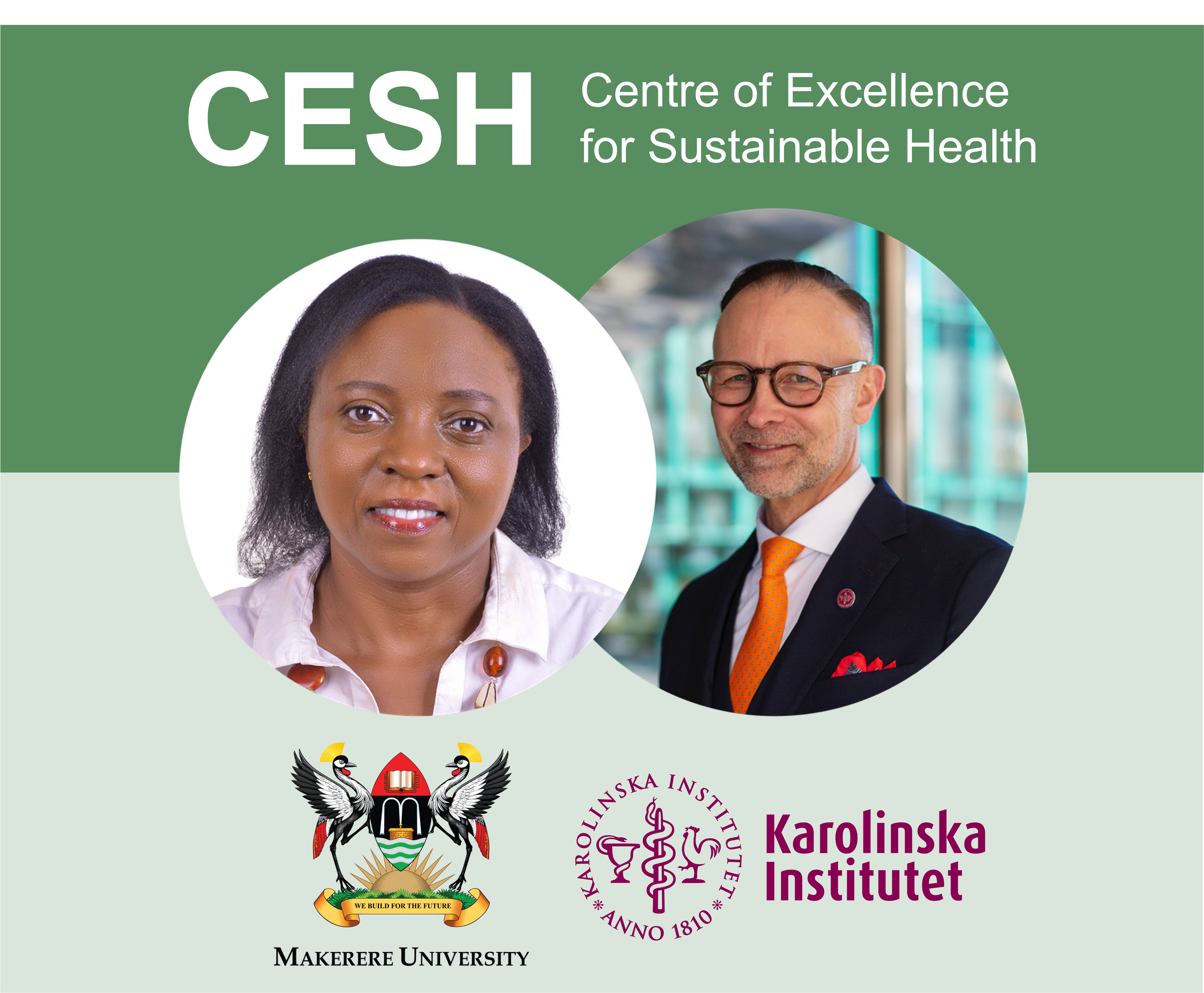
Prof. Damalie Nakanjako, Deputy Chair, former Chair,
and Prof. Martin Bergö, current Chair of the steering
committee of the Centre of Excellence for Sustainable Health.
Both Makerere University and Karolinska Institutet are renowned for their advancements in research and education, as well as their strategic collaborations across the globe. Among these collaborations, the Centre of Excellence for Sustainable Health (CESH) operates on multiple levels, facilitating broad and impactful partnerships in sustainable health and development.
A unique collaboration
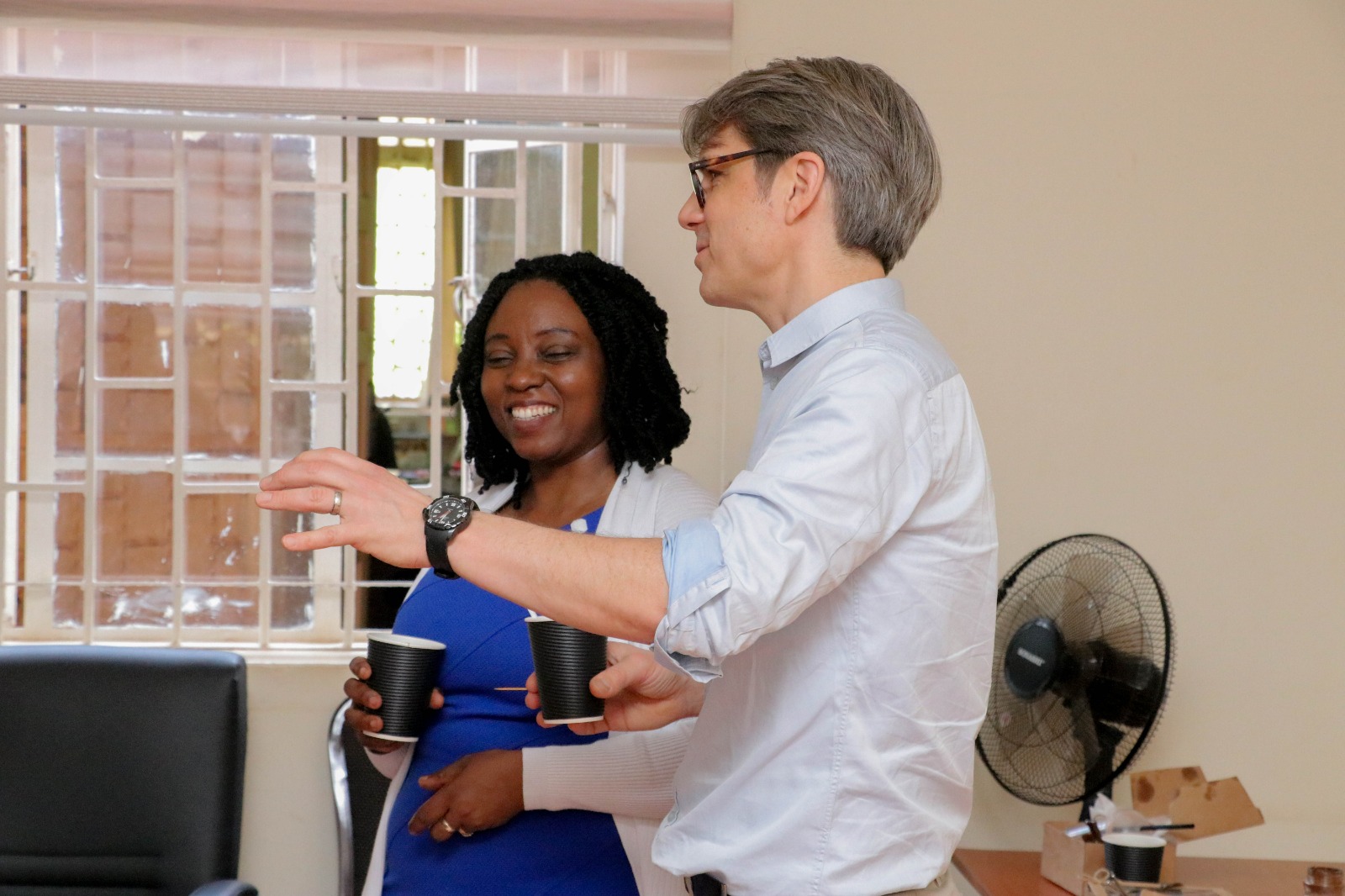
Prof. Damalie Nakanjako and Prof. Tobias Alfvén during CESH Committee meeting in Kampala in February 2024.
Photo: Davidson Ndyabahika.
The Centre's uniqueness lies in its holistic approach to sustainable health. While many collaborations focus on specific aspects of health or isolated research projects, CESH spans a wide spectrum of activities.
The Centre includes capacity building, education, policy advocacy, research and community engagement. This approach aligns with the universities' commitment to advancing global health through innovative and impactful research and collaboration.
"This is an example of a sustainable collaboration between two universities that has been ongoing for over two decades".
Prof. Damalie Nakanjako, Makerere University, Deputy Chair of the steering committee of the Centre of Excellence for Sustainable Health.
According to Damalie Nakanjako, Professor of Medicine, Principal for Makerere University College of Health Sciences, the Centre has shown resilience in collaboration and innovation, utilizing virtual networking to emerge stronger through the COVID-19 pandemic.
A moving experience
Martin Bergö shares his impressions: "When I first visited Uganda with CESH, I didn’t have high expectations for the healthcare settings. However, the reality there was even more challenging than I had anticipated".
He continues: "Visiting hospitals and local organisations in person, seeing the dedication of healthcare professionals working tirelessly in tough conditions was both humbling and inspiring. Feeling the intense pressure in overcrowded facilities and the resilience of both staff and patients brought the gravity of CESH mission into sharp focus."

A visit to Africa Medical and Behavioural Sciences Organization (AMBSO) in February 2024.
Photo: Kseniya Hartvigsson.
"The reality of healthcare in Uganda is complex and multifaceted, and being there in person illuminated the critical importance of CESH efforts in a way that no report could demonstrate".
Martin Bergö, Vice President of Karolinska Institutet, Chair of the steering committee of the Centre of Excellence for Sustainable Health.
Watch a film about CESH
The importance of continued efforts
This experience reinforced the importance of continuing with the CESH project. "We cannot afford to sideline these efforts; they are too crucial and require adequate funding. The complex challenges that CESH addresses must be acknowledged and integrated into our collaborative efforts to ensure meaningful progress", says Martin Bergö.
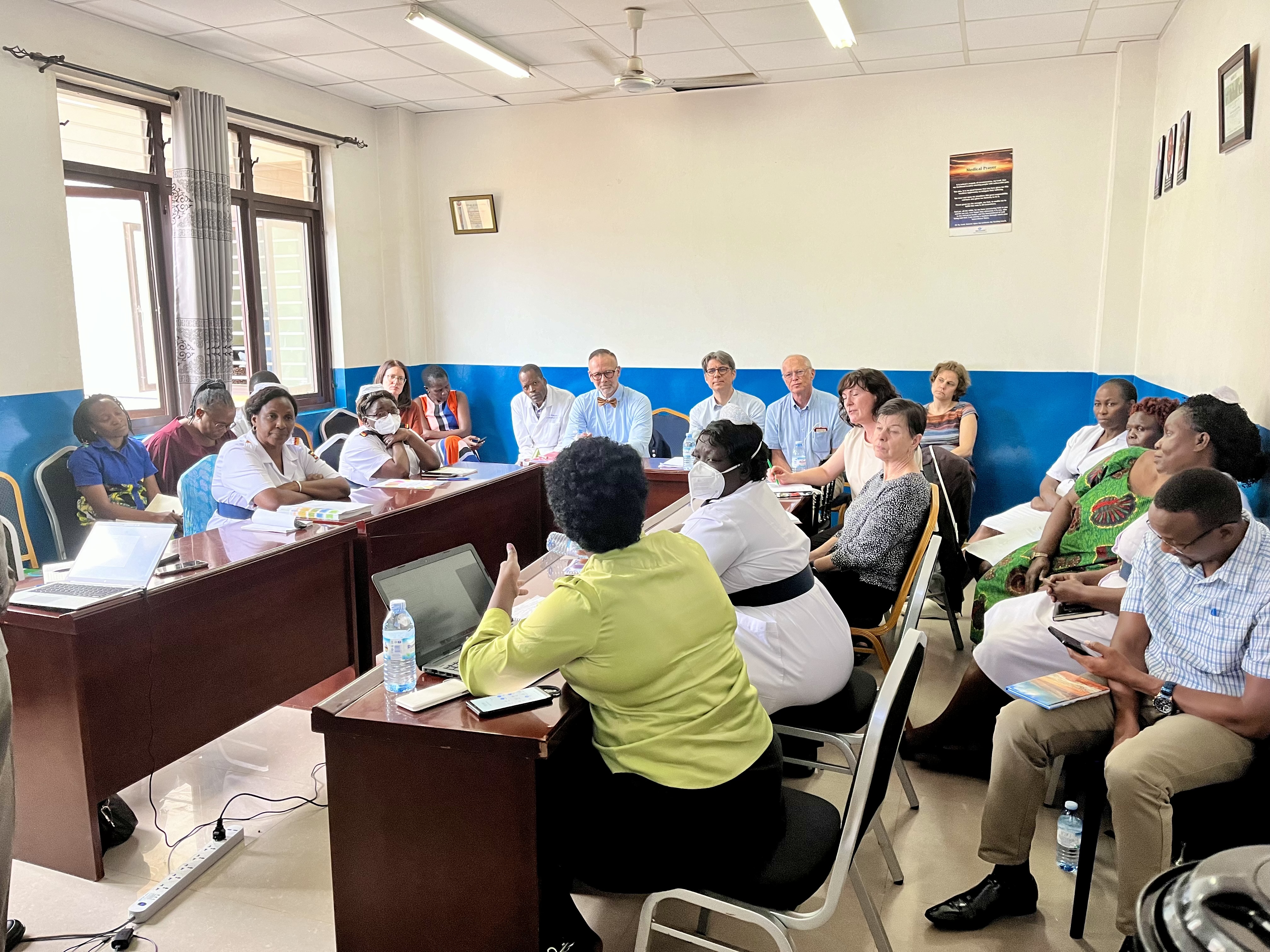
A meeting at Naguru Hospital in Kampala in February 2024. Photo: Kseniya Hartvigsson.
Global relevance
Damalie Nakanjako emphasizes that this collaboration is not just locally significant; it holds global relevance. The insights and innovations CESH develops can serve as models for other regions facing similar challenges. The lessons learned and successes achieved at CESH can inspire and inform global health policies, fostering a ripple effect that extends far beyond our immediate sphere of influence. "CESH provides an opportunity to understand global health challenges and the impact of academic health research in offering solutions through real-life case studies in Uganda", says Damalie Nakanjako.
Participants of MISH leadership program in Kampala in May 2023. Photo: Davidson Ndyabahika.
"CESH fosters a multidisciplinary environment for training the next generation of scientists, promoting equity, diversity, and inclusion".
Damalie Nakanjako, Makerere University, Deputy Chair of the steering committee of the Centre of Excellence for Sustainable Health.
Impact of the Centre
The Centre has made significant contributions to research and cultivated impactful partnerships across various educational and leadership programs:
MIDWIZE program has improved maternal and child health, and contributed to higher satisfaction with care among women, and better medical outcomes
SDGCap capacity-building program has united local and national stakeholders to focus on sustainable development and health
66 managers in the health sector of DR Congo, Somalia and Uganda have completed the leadership program Managing Innovation for Sustainable Health (MISH)
The Centre has developed four Tools for Action that are increasingly being used across countries and settings
The Centre has contributed to important research results
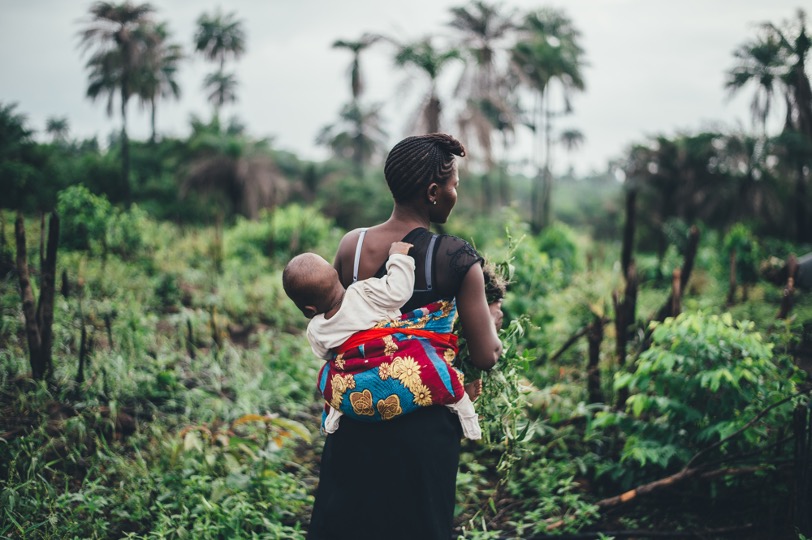
Photo: MIDWIZE.
Read Annual Report 2023
The way forward
The path to sustainable health is not the one that can be walked alone. "The main challenge we face is promoting universal access to healthcare along several inequalities. They require strategic capacity building to empower the current and next generation of scientists to sustain an equitable global response to national, regional, and global health challenges", says Damalie Nakanjako. Continued funding, political will, and academic collaboration are essential components that drive the democratization process of healthcare.
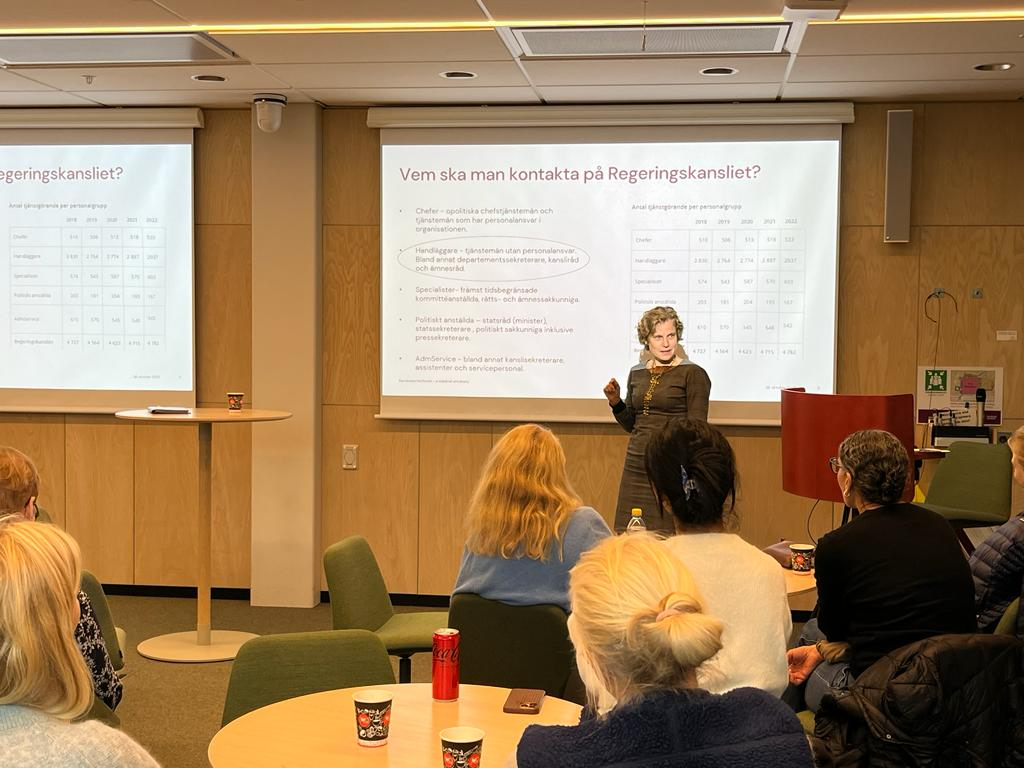
Nina Viberg presenting at the Policy Lab in October 2023. Photo: Åsa Svensson.
